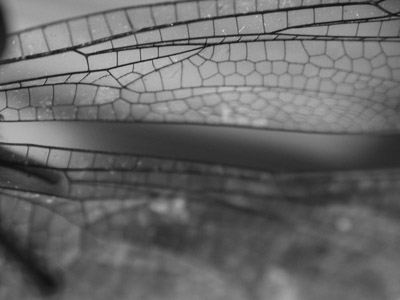Miracles swarm in the Mississippi delta in summertime.
The blooms overwhelm me, reminders of what lives between the lived-in spaces at the limits of my vision. Where do they come from? Who created them? Are they a blessing from above, or a curse from below?
Most importantly, should I call an exterminator?
*
A miracle of bees infests the grocery.
She never sees them alive. They congregate under the windows and doors to die, a thin film of dust settling softly on their fragile wings. She sweeps them up in the evening and puts them in a shoebox, unsure of what to do with them but unwilling to unceremoniously throw them away.
Honey runs down the walls in long amber beads, flowing slowly from cracks in the bricks. She places mason jars along the floor to collect the honey; it glows golden as the setting sun sends one last ray through the glass.
She adds a spoonful to her coffee, like an archaeologist upon opening King Tutankhamen’s tomb and discovering his personal honeypot, but she finds it a little too sweet for her tastes and pours it out.
*
A miracle of ladybugs infests the old schoolhouse.
The red-coated creatures fan out across the ceiling and bathe in the lampshades. When the lights go out they drawl in waves across the walls in search of new brightness. They creep across the television screen late at night; I have no choice but to stare at them.
When I sleep they land on my naked shoulders and crawl down my chest. I pick at them like little scabs, pinching their wings between my fingernails and throwing them into the fireplace, where they go up in a sparkle of smoke.
I feel guilty for such a petty holocaust, but the important thing to remember is that ladybugs are just beetles, after all, and normal people don’t waste time in sympathy with beetles. Why should I?
*
A miracle of roaches infests the mansion by the riverbed.
They come in from the rain like a buffalo herd, stampeding into the dry foyer and scattering in every direction. They congregate in the shower at sunrise; they fall from the faucet head following water and get stuck in the drain. They make mischief in the cupboards with the cereals and crackers and they sleep in the cool electronic light of the household appliances.
When I pull up a floorboard they parade past me in lanes of glistening brown and crawl up the walls. An unlucky one gets caught in the open; I snatch him up and throw him out the window into the rain.
*
The delta swells with life. Loneliness is a delusion for people who do not believe in miracles; we can never really be alone again. Knock on the walls; they are there. Pull down the ceilings and rip up the floors; they are alive and they are waiting to see you. The furniture shakes, the clothes move, our eyebrows quiver; all of the pieces of life harbor life, and all life is miraculous.
Yet still I’m deluded by loneliness. I must not believe in miracles, after all.
*
A miracle of earthworms dies on the sidewalks.
They get lost in their desperate crossing of the concrete and burn to death under the noon sun, writhing on the white-hot surface until their brains boil and their skin cooks into crispy wrinkles of blackened flesh.
It isn’t reasonable to save them. Even when they flip and twist in agony, half-dead, needing only one gentle push into the cool, damp grass to save their lives, it doesn’t make sense to go around saving worms. Reasonable people don’t even realize what’s happening.
The miracle of fire ants waits until sunset and then marches across the sidewalks to feed on burnt worm. They crawl over the still-cooking corpses and tear the meat out with their mandibles, carrying the bodies in pieces back to the colony to furnish the queen with nutritious protein. That is the miracle of ants.
I crush the ant-infested worms under my heels as I walk.
Daniel Uncapher lives and writes in Water Valley, Mississippi, where he operates a private printing press out of his antebellum home. His work has appeared in both Neon and The Baltimore Review.

